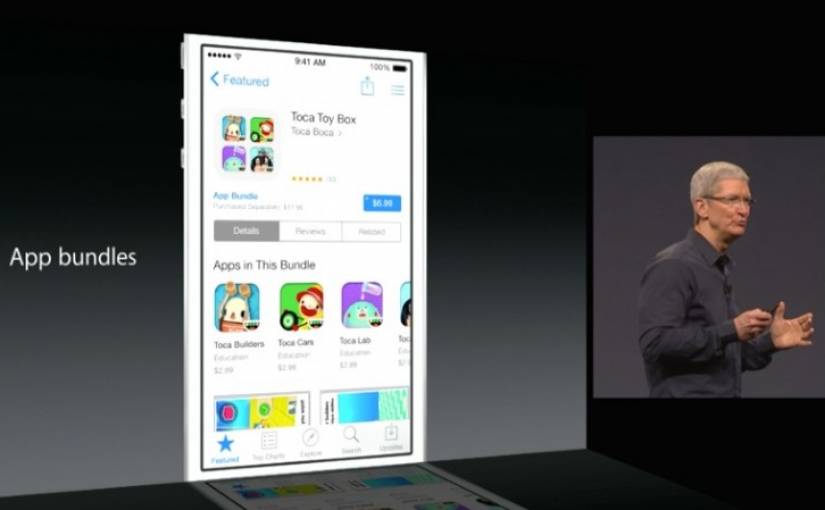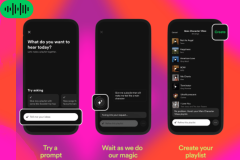Apple’s Worldwide Developers Conference used to be the stuff of legend. We waited with bated breath for groundbreaking innovation. But… this year’s WWDC didn’t feature the significant product launches of yesteryear. Instead, the crowds watched the unveiling of Apple Arcade – the games subscription service.
On the one hand, it indicates the growing importance ‘services’ business hold is for Apple. Services – which includes app store revenues – has steadily grown and accounts for 20% of the revenue. But here’s the kicker – for the first time since 2015, app downloads are on the decline. What’s more, the need for them is being called into question by companies like Spotify.
So what about software developers? Is there still value in the App Store, or should they risk gaining independence by going direct?
Why go to an app store at all?
Developers starting out must choose between selling directly or using a third-party app store, who can do the discovery and back-end for them.
App stores gain from delivering the best experience for the buyer and why they keep coming back or more. Estimates of app store values go as high as $34.4 billion for 2018 sales though Apple and Google’s stores.
The appeal of a captive audience
Consumers are exposed to emerging apps by them being in the store – a clear advantage of an app store. Fortnite’s developer, Epic Games, and Spotify gained fame through a relationship with the app store initially. An emerging app to who sells direct, without being first established, requires a lot of marketing first.
So when growing a user base is everything, it makes sense to go where the audience is. Selling within an app store builds up the app’s presence and saves valuable time and effort in the back-end systems and processes. This is highly desirable as it allows developers to build out the process over time, ultimately removing the burden of selling and managing the sale process at the initial release stage.
There’s no debate that the app store delivers value. It’s just whether this value is geared towards emerging apps rather than established brands that have a loyal fanbase.
It’s worth mentioning that Apple has acknowledged this to some extent. They’re dropping their fee in the second year of subscription purchases from 30% – 15%. At that point, the customer is exclusively paying for the infrastructure provided, since the product is already discovered.
The other side of the coin
App stores are not the ultimate oasis for developers. Firstly, you’re building a dependence on the platform to handle a variety of tasks. However, the more significant issue is the cut taken for sales/recurring subscriptions limits further growth. And now we’re seeing the introduction of bundled subscription services – an ‘all-you-can-eat’ plan to consume as many apps as consumers want.
The Spotify/antitrust investigation is an interesting one. Spotify’s video has called out Apple for its 30% cut when selling subscriptions on its App Store (which has led to an antitrust investigation which could alter how the app store serves its customers). The reason Spotify cited the threat of leaving was that Apple’s cut of its profits didn’t justify the value it offered anymore.
Growing disillusionment among developers
While app stores have focussed on delivering value to buyers, like Apple’s new games subscription service, it is neglecting developers.
So why software providers don’t love the app store like they used to. Well, the figures don’t stack up thanks to the lack of control over pricing and the risk of being bundled with more prominent players at a cheap monthly fee. Spotify may be a big name challenging the status quo with its antitrust case, but they’re not the only ones. The last few years have seen a steady stream of independent software developers choosing to leave app stores, citing the lack of flexible pricing options and weak incentives to stay.
This criticism casts light on the point at which big-name apps (like Realmac and Rogue Amoeba) no longer need to use the app store to sell.
Leaving the app store
Once your app has become a recognized brand with a sustainable amount of loyal customers, you may start to question if the app store’s cut is worth it. If the app store gets money doing something you already subsidize through your direct offering, you may ask, ‘why are we still on the app store?’
Spotify has found itself in this situation. Apple’s App Store had brought them the early benefits of infrastructure and eyes on its product. However, Apple’s recurring cut of subscription sales after the initial sale undercuts the growth they could have long-term.
Another reason established brands want to gain independence is to bypass the bureaucratic process of getting your update approved by an app store. This is something that developers have to take into consideration when considering dates of release. The delays in getting updates approved slow Spotify down heavily, according to their video.
When you’ve reached the sales of an app like Spotify, you don’t have to rely on app stores for those initial eyes on your app. So, what else should you consider to go it alone successfully?
Key points of going direct
Selling an app direct sustainably is a huge hurdle. Success requires a loyal customer base, a marketing plan with a sufficient budget, and the necessary backend features to power it all.
Loyal customers are the foundation for selling direct, but you need to do more to survive it alone. Mobilizing that loyal audience is crucial because they’ll be more likely to purchase a direct offering.
How can you gauge customer loyalty?
Having a high retention rate is one way, but another is measuring Net Promoter Score (NPS), which plots the percentage of promoters minus the percentage of detractors. Understanding your NPS allows you to measure how satisfied your existing customers are with the service, and help you anticipate how likely they would be to churn.
If the website visits organically coming from search are on the rise, but you are still pushing those visitors to the app store, you should consider selling direct.
The best possible outcome would be that your word-of-mouth is so good that your organic customers grow. Then you don’t need the app store anymore. Alternatively, through the people you’ve previously acquired through the app store, you gain enough credibility and happiness with the service that you can start doing it yourself.
You need the kind of customers that will flock to your latest release. Take a company like King, who produces Candy Crush. If King released outside of the app store, using an in-app interstitial, they’d still receive millions of downloads without the app store. So, staying within the app store is like being a small fish in a big pond.
Agenda, an Apple design award winner in 2018, focuses on a direct offering first, complemented by an option to go to the App Store.
Don’t forget the backend capabilities
One final consideration will be your backend capabilities since the app stores will have previously done the heavy lifting of product delivery, currency conversion, and tax. A Merchant of Record model handles all these areas and more.
What if it all goes wrong?
There may not be an immediate increase in sales as you’ll need to start from scratch to gain your independence. This may be a case of launching campaigns to mobilize your audience and find new ways to generate awareness. Just remember you’re competing in a fragmented marketplace outside of the app store. You need to find ways to stand out if you’re to find your footing independently.
The future relationship between developers & the app store
Don’t expect their dominance to diminish anytime soon. While app downloads are declining, people still use the app store to get what they want, when they want it.
But this is changing. The debate about pricing and control over developer’s apps rages on, and developers talk with their feet, leaving the stores to go independent. Thanks to the Spotify antitrust case, we expect to see many debates in the coming months about how Apple and other app stores conduct themselves with developers. This isn’t going to slow down progress, as WWDC showed. We expect to see the replication of Apple Arcade in other forms as consumer hunger for subscription services continues to grow.
What we can expect to change is how developers use app stores. App stores still provide the best immediate platform for discovery to build up an audience. However, more developers will take the plunge into independence as they recognize the value of leaving the app store. It allows for more significant growth and sustainability by working on keeping customers loyal to your app.


























